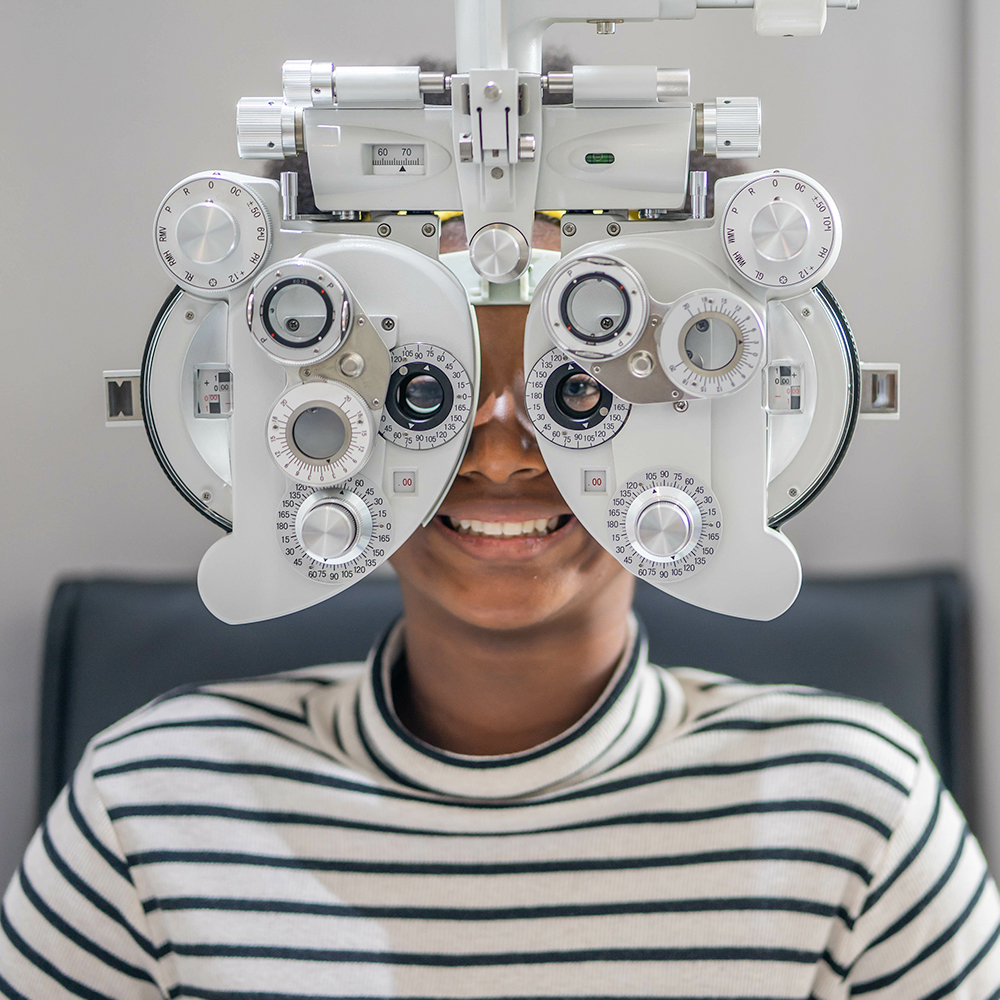Why Selecting an Eye Doctor Optometrist is Important for Your Eyes
Why Selecting an Eye Doctor Optometrist is Important for Your Eyes
Blog Article
Understanding the Comprehensive Duty of an Optometrist in Modern Eye Care
With innovations in modern technology and an enhancing emphasis on preventative treatment, eye doctors are indispensable in identifying and managing persistent eye conditions, while additionally engaging in very early illness detection. Just how do these responsibilities converge with their duty in promoting overall eye health and wellness, and what does this mean for client end results in a collective medical care atmosphere?
Expanded Extent of Method
In current years, the role of eye doctors has actually evolved considerably, with numerous specialists currently welcoming an increased scope of method that expands past conventional eye exams. Their responsibilities currently include a vast array of services, including suggesting medications for ocular problems, managing chronic eye conditions, and performing minor surgical procedures.
Further, eye doctors are now much more associated with collective care, functioning carefully with ophthalmologists, primary treatment medical professionals, and other healthcare specialists to make sure alternative patient treatment. This interprofessional partnership is important in managing intricate instances that require a multidisciplinary strategy. Furthermore, optometrists are playing a crucial function in public wellness efforts, such as vision screenings and eye wellness education, intended at enhancing area health and wellness outcomes.
The broadened scope of method for optometrists not just boosts their capability to provide thorough care however also attends to the growing demand for accessible and efficient eye care solutions, contributing to general healthcare enhancements.
Very Early Disease Discovery
Early detection of eye conditions is progressively coming to be a centerpiece in the broadened duty of optometrists. As key eye treatment companies, eye doctors are uniquely placed to identify very early signs of eye conditions such as glaucoma, macular deterioration, diabetic person retinopathy, and cataracts. This critical duty is vital, as early medical diagnosis can substantially enhance the monitoring and prognosis of these problems, possibly protecting against vision loss and enhancing patient results.
Optometrists use thorough eye exams to detect refined adjustments in vision and eye wellness. The capacity to acknowledge early indicators of systemic health issues, such as hypertension and diabetic issues, with eye indications additionally emphasizes the significance of routine eye examinations.
Furthermore, optometrists play an important duty in client education and learning, highlighting the significance of routine eye exams as part of total health care. By cultivating a positive approach to eye treatment, optometrists add substantially to public health, making certain illness are captured and handled efficiently before they can proceed.
Advanced Diagnostic Methods
Advanced analysis techniques have changed the practice of optometry, allowing experts to spot and keep track of eye illness with unprecedented precision. Technologies such as optical comprehensibility tomography (OCT) give high-resolution, cross-sectional images of the retina, facilitating early detection of conditions like glaucoma and macular degeneration.
Another vital innovation is electronic retinal imaging, which records comprehensive views of the retina utilizing high-definition cams. This innovation is critical in identifying changes in retinal structure in time, thus helping in the monitoring of problems like diabetic person retinopathy. Visual area screening, enhanced by computer-aided systems, enables for exact mapping top article of a person's area of vision, crucial in tracking and identifying glaucoma progression.
Corneal topography, an additional notable analysis device, generates comprehensive maps of the cornea's surface area. This is especially helpful in fitting contact lenses and intending refractive surgical procedure. These innovative diagnostic techniques jointly allow optometrists to give positive, targeted care, making certain much better client end results and strengthening their critical duty in eye health and wellness management.
Managing Persistent Eye Conditions
Taking care of persistent eye conditions is a keystone of optometric care that requires a comprehensive understanding of different ocular conditions and their long-lasting implications. Eye doctors play an essential role in diagnosing, managing, and surveillance problems such as glaucoma, diabetic retinopathy, and age-related macular deterioration. These conditions, if left unattended, can bring about substantial visual impairment or loss of sight, highlighting the essential significance of recurring care and administration.
Eye doctors employ a series of analysis devices, including optical coherence tomography (OCT), visual area screening, and fundus photography, to evaluate the development of these persistent conditions. By closely keeping track of modifications in eye wellness, optometrists can adjust treatment strategies to minimize condition progression. This may include recommending drugs, recommending way of life adjustments, or collaborating with ophthalmologists for medical interventions when essential.

Duty in Preventive Treatment
Precautionary care is a fundamental element of optometry that focuses on maintaining eye page health and stopping the beginning of eye illness. Eye doctors play an important role in early detection and avoidance, using regular eye assessments to recognize threat factors and subtle modifications in eye wellness. Opticore Optometry. These evaluations are not simply regarding vision adjustment but encompass a comprehensive assessment of eye functions and frameworks, making it possible for the recognition of conditions such as glaucoma, cataracts, and macular deterioration at a beginning
In addition to diagnostics, eye doctors educate people on lifestyle selections that promote eye health and wellness, such as proper nutrition, UV Our site defense, and the significance of normal eye examinations. They advise on the proper use electronic gadgets to stop electronic eye stress, an expanding issue in the electronic age. Optometrists additionally offer support on protective eyeglasses for entertainment and occupational activities, minimizing the risk of injury.
Precautionary eye treatment expands to systemic health and wellness problems that manifest in the eyes, such as diabetic issues and high blood pressure. By collaborating with various other healthcare specialists, eye doctors contribute to alternative individual treatment, highlighting the interconnectedness of ocular and systemic wellness. This positive approach is important in protecting aesthetic skill and total health.
Conclusion
Optometrists now occupy an essential duty in modern-day eye treatment, identified by an expanded scope that includes diagnosing and handling chronic eye conditions, recommending drugs, and performing minor surgeries (Eye Doctor). Their knowledge in very early condition discovery is boosted by innovative analysis strategies such as optical comprehensibility tomography and electronic retinal imaging. By emphasizing preventive care and individual education and learning, eye doctors contribute considerably to overall eye health and wellness, collaborating with other medical care specialists to ensure detailed and efficient individual end results

In addition to diagnostics, optometrists enlighten people on way of life choices that promote eye wellness, such as appropriate nutrition, UV defense, and the relevance of routine eye check-ups.Preventive eye treatment prolongs to systemic health concerns that manifest in the eyes, such as diabetes and high blood pressure.Optometrists currently inhabit a critical role in contemporary eye care, identified by an increased scope that includes detecting and managing chronic eye conditions, suggesting medicines, and executing minor medical treatments.
Report this page